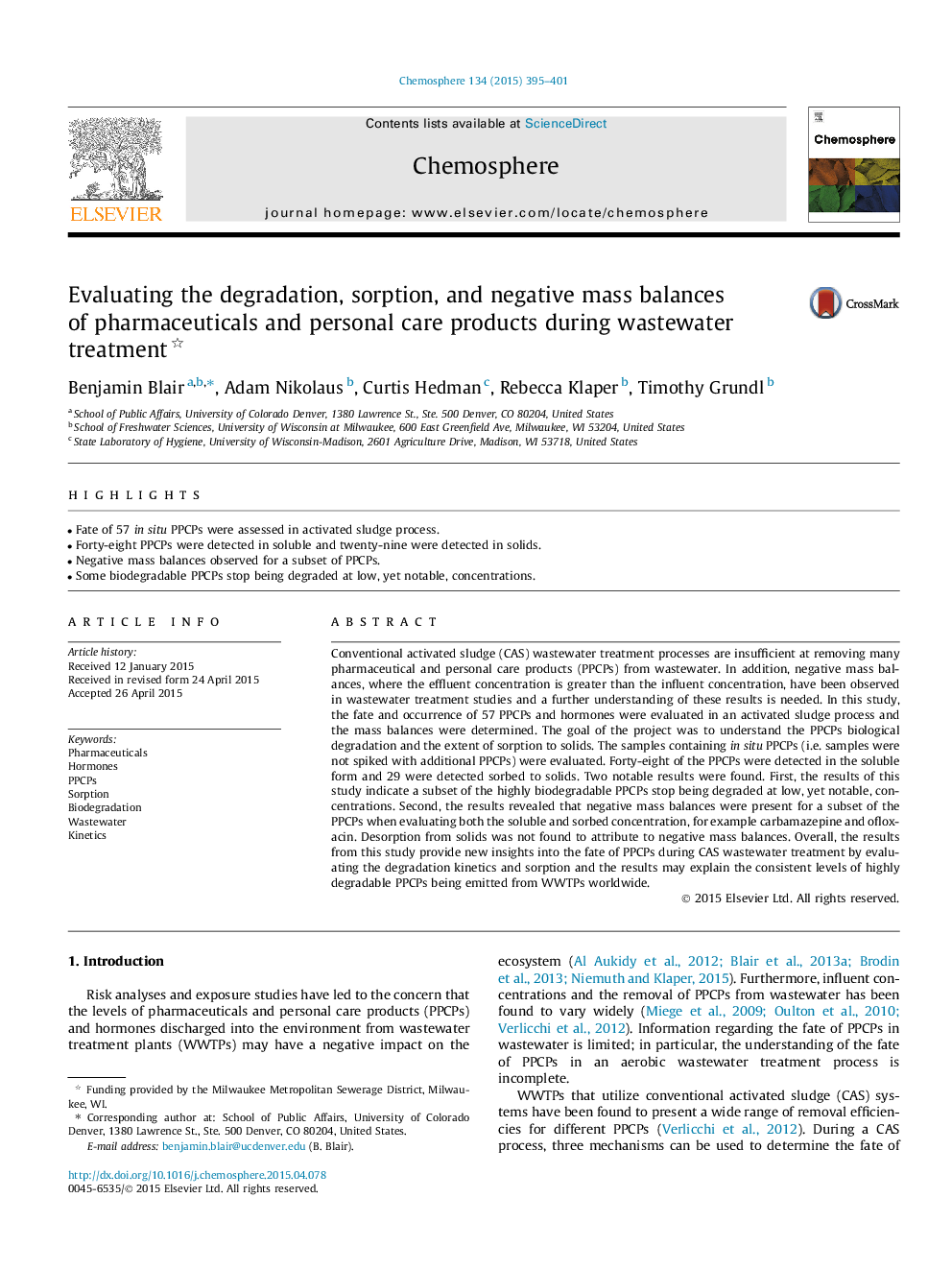| Article ID | Journal | Published Year | Pages | File Type |
|---|---|---|---|---|
| 6307715 | Chemosphere | 2015 | 7 Pages |
Abstract
Conventional activated sludge (CAS) wastewater treatment processes are insufficient at removing many pharmaceutical and personal care products (PPCPs) from wastewater. In addition, negative mass balances, where the effluent concentration is greater than the influent concentration, have been observed in wastewater treatment studies and a further understanding of these results is needed. In this study, the fate and occurrence of 57 PPCPs and hormones were evaluated in an activated sludge process and the mass balances were determined. The goal of the project was to understand the PPCPs biological degradation and the extent of sorption to solids. The samples containing in situ PPCPs (i.e. samples were not spiked with additional PPCPs) were evaluated. Forty-eight of the PPCPs were detected in the soluble form and 29 were detected sorbed to solids. Two notable results were found. First, the results of this study indicate a subset of the highly biodegradable PPCPs stop being degraded at low, yet notable, concentrations. Second, the results revealed that negative mass balances were present for a subset of the PPCPs when evaluating both the soluble and sorbed concentration, for example carbamazepine and ofloxacin. Desorption from solids was not found to attribute to negative mass balances. Overall, the results from this study provide new insights into the fate of PPCPs during CAS wastewater treatment by evaluating the degradation kinetics and sorption and the results may explain the consistent levels of highly degradable PPCPs being emitted from WWTPs worldwide.
Related Topics
Life Sciences
Environmental Science
Environmental Chemistry
Authors
Benjamin Blair, Adam Nikolaus, Curtis Hedman, Rebecca Klaper, Timothy Grundl,
